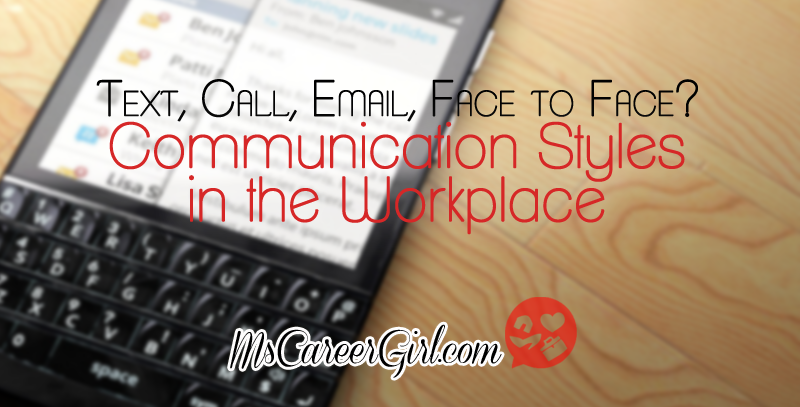4 Ways Women Talk Differently In The Workplace (& What Men Could Learn From Us)

Of all the tired clichés, “Men are from Mars, Women are from Venus” may be one of the worst. In the workplace, notions that all engineers should be men and all nurses should be women are as outdated as they are ludicrous, and we girls can CEO as good as anyone, thank you very much.
Yet when it comes to language, studies suggest that gender often does alter the way we choose to communicate. Women are politer, men are more assertive. Men are more attention-seeking, women more empathetic.
Conventional wisdom is that the way to boost your career is to “man up” by copying traditionally masculine traits. Rubbish! There are massive advantages of ‘female’ communication styles, and recognising their uses and effects could get you far.
Do women use more questions?
Three times as many as men, allegedly. What’s the problem with that? Well, multiple-questioners are accused of slowing down progress and delaying decision making.
Nobody wants to be the workplace equivalent of the inquisitive toddler in the backseat of the car but, used correctly, question-asking is actually highly beneficial. Asking a question in a meeting fosters discussion and stimulates debate. Engaging colleagues in this way creates a collaborative environment, and is proven to boost productivity. Asking questions also consolidates understanding and establishes priorities, minimising mistakes and focusing energy on the most important aspects of a project.
How should questions be used? By prioritising quality over quantity. Ask questions that encourage specific, focused answers, and concentrate on questioning the particularly complex or controversial aspects of any discussion to ensure clarity and cooperation.
Is that clear?

Women are really terrifically awesome at using super interesting intensifiers and adjectives.
When Robin Lakoff famously listed the differences between male and female language, she implied that our increased use of “empty” adjectives and intensifiers was a bad thing. While she was right that women tend to use more adjective and intensifiers than men, anyone who claims such descriptive language is meaningless has almost certainly not read any good books lately.
Description allows listeners to visualise what we’re saying and therefore connect more intensely with it. Indeed, the ability to paint a word picture is seen as such an effective sales technique that it’s been compared to hypnosis. And while intensifiers can be extremely annoying if overused, no one will be surprised to hear that verbal indicators of enthusiasm for work projects or ideas tend to go down well with managers.
Of course, being concise has advantages too. Simple statements are best if you need to convey information quickly or establish hard facts and figures. The trick is to be able to adapt your language style depending on the situation at hand.
Women may be a bit more likely to hedge their statements.
A hedge is possibly a form of tentative language which makes statements less forceful or assertive. Maybe. Women are almost 2.5x as likely to use them in conversation as men.
Tentative language gets a bad rep because it can give off the impression you are indecisive or unconfident in your opinion. People are therefore less likely to listen to you, and more likely to ignore what you suggest. Certainly, it is a good idea to avoid tentative language for direct requests, especially if you’re the senior party and want to convey authority.
But tentative language has its uses. Starting every last opinion or idea as though it is irrefutable fact makes people look foolish and egotistical – neither of which is a good look in the workplace! Plus, it’s actually harder to dismiss a statement you oppose if it’s hedged and therefore offered as one alternative, rather than the alternative.
The most important use of tentative language, however, is to disagree with someone. People don’t like to be told they’re wrong and get defensive if they feel their view is being challenged. Particularly when they’re an important client or your boss, it’s crucial to be able to disagree in a polite, non-aggressive way. Using tentative language means you’re not rubbishing someone’s position entirely. And it lets them ‘save face’, which not only reduces conflict but actually makes it much more likely that they’ll change their mind to align with yours.
It has been suggested by various studies over the years that women can display a tendency towards a greater volume of communication.
Or; women talk more. Some say we beat men in our verbal word count by a massive 13,000 extra words per day. But that figure is hotly debated (presumably by women, men having used up their entire vocabulary by 3pm). It does seem to be true, however, that women tend to be more talkative in the workplace, because they are much more inclined towards collaboration.
Ignore the stereotypes of nagging, gossipy women – this conversationalist leaning actually gives us a professional edge. You know those trends for open plan offices and hot desking? That’s because employers want to encourage their employees to interact with each other. They understand that this stimulates the flow of ideas and creates a more positive work environment. Oh, and being able to communicate in a transparent, collaborative manner is one of the most highly valued leadership traits. Even non-work discussion with colleagues is an important factor in boosting morale and increasing job satisfaction.

It’s always dangerous to generalise, and of course there is no universal ‘female’ language that we all subscribe to. The point is that the above traits are highly beneficial methods of workplace communication, and should be used by anyone who wishes to come across as an empathetic, engaging and cooperative employee. Insomuch as there is a ‘womenspeak’ however, well, we’ve got some pretty good ideas!
So lean in boys; you’ve got a lot to learn.
Beth writes graduate careers advice for Inspiring Interns, a graduate recruitment agency which specialises in finding candidates their dream internship. To hire graduates or browse graduate jobs London, visit their website.
Image credits.




